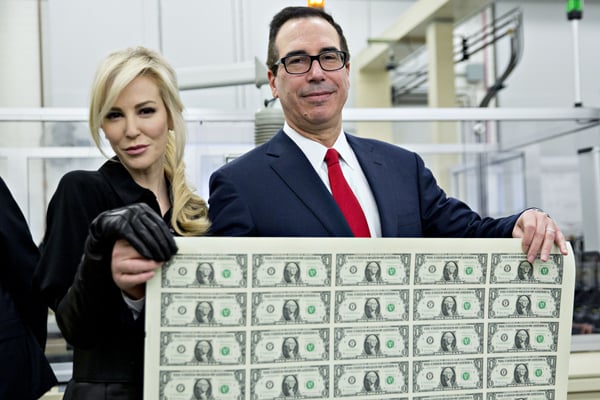
ITEP's Research Priorities
- 2025 tax debate
- Blog
- Cannabis Taxes
- Corporate Taxes
- Corporate Taxes
- Earned Income Tax Credit
- Education Tax Breaks
- Estate Tax
- Federal Policy
- Fines and Fees
- Georgia
- Immigration
- Income & Profits
- Income Taxes
- Inequality and the Economy
- ITEP Work in Action
- Local Income Taxes
- Local Policy
- Local Property Taxes
- Local Refundable Tax Credits
- Local Sales Taxes
- Maps
- Media Quotes
- News Releases
- OBBBA
- Other Revenues
- Personal Income Taxes
- Property & Wealth
- Property Taxes
- Property Taxes
- Publications
- Refundable Tax Credits
- Sales & Excise
- Sales, Gas and Excise Taxes
- Sales, Gas and Excise Taxes
- SALT Deduction
- Select Media Mentions
- Social Media
- Staff
- Staff Quotes
- State Corporate Taxes
- State Policy
- State Reports
- States
- Tax Analyses
- Tax Basics
- Tax Credits for Workers and Families
- Tax Credits for Workers and Families
- Tax Guide
- Tax Principles
- Tax Reform Options and Challenges
- Taxing Wealth and Income from Wealth
- Toolkits
- Trump Tax Policies
- Video
- Webinar
- Who Pays?
Hartford Business Journal: Major policies opposed by businesses loom in Democrat-controlled legislature
January 14, 2019
When Rep. Josh Elliott (D-Hamden) calls Connecticut’s tax system regressive, it’s not just an opinion. The Democrat is citing a 2014 report by the state’s own tax department, that uses a scoring method called the Suits Index to measure the impact of Connecticut’s nine major state and local taxes. The Department of Revenue Services concluded […]
Oregonian: Profits Double, Tax Payments Fall at Nike, Attracting Attention of EU Regulators
January 12, 2019
By the end of 2017, Nike had $12.2 billion in permanently reinvested earnings. The company estimates that had it dispensed with the foreign strategy and kept that money in the U.S., the taxes would total $4.1 billion. In other words, Nike saved $4.1 billion by employing the overseas tax strategies, said Matt Gardner, a senior […]
Arkansas Democrat-Gazette: State Finance Official Says 200,000 Filers Would See Tax Increase in Plan’s Current Form; Governor Wants Fix
January 11, 2019
Rep. Lane Jean, R-Magnolia, said he started digging last month into a written analysis of the plan given by Lisa Christiansen Gee, senior policy analyst at the Institute on Taxation and Economic Policy in Washington, D.C. The analysis, given to the task force last fall, suggested some taxpayers would pay more in net income taxes […]
The Intellectualist: Study: Tax Cuts For The Top 1% Cost More Than Entire Food Stamp Program
January 9, 2019
According to estimates from the Institute on Taxation and Economic Policy, the richest 1 percent of households, those with incomes higher than $607,090, stand to receive a total tax cut of more than $84 billion in 2019 alone. To put this number in perspective, in 2019, the total cost of nutrition assistance benefits paid through […]
The Root: Trump Goes on National TV to Talk about His Dumb Wall
January 8, 2019
His assertion that undocumented immigrants create a strain on our nation is basically refuted in a 2017 report from the Institute on Taxation and Economic Policy (pdf) which shows undocumented immigrants pay an estimated $11.74 billion in state and local taxes. Additionally, 50 percent of undocumented immigrants file federal tax returns using Individual Tax Identification […]
Alternet: It’s Not About National Security…the Insidious Truth Behind Trump’s Wall
January 6, 2019
Whether legal or illegal, all immigrants pay sales taxes and property taxes (the latter are factored into the cost of rental units for people who don’t own homes). And all legal immigrants pay all the payroll and income taxes that native-born Americans do. Amazingly, most illegals also cough up income and payroll taxes too. That’s […]
The Progressive: States and Localities Move to Reverse Racist and Regressive Tax Policies
January 3, 2019
And a recent analysis of state and local tax systems by the Institute on Taxation and Economic Policy shows that, as a whole, state and local governments tax the poor at higher rates than they do the rich. Why is state and local taxation so backwards in the United States? Some state constitutions prohibit progressive […]
Record Eagle (Mich.): Help Michigan’s Poor by Scrapping Gas Tax
January 3, 2019
ndeed, the Institute on Taxation and Economic Policy finds the Michigan tax code to be a matter of “soak the poor and middle class, spare the wealthy.” According to ITEP, the total Michigan tax rate on the top 1 percent, with average income of $1,164,700, is 5.1 percent. This includes all Michigan taxes. The lowest […]
Politics USA: Sen. Kamala Harris Immediately Introduces Middle Class Tax Cut Bill
January 3, 2019
The Institute on Taxation and Economic Policy estimates the LIFT Act would impact one in every two workers and two out of every three children in America. In addition, ITEP estimates approximately 1 million Pell Grant eligible students would qualify for the credit of up to $3,000. Read more
Washington Times: Trump Tax Cut Foiled by State’s Itemized Deduction Rule
December 31, 2018
Last year, many states opened their legislative sessions at the beginning of January, just after the federal tax law passed in December 2017, leaving them little time to figure out the new landscape. “I think they were very flat-footed,” said Meg Wiehe, deputy director of the Institute on Taxation and Economic Policy. “We were even […]
Mother Jones: It’s Been a Year Since Trump Enacted Sweeping Tax Cuts. The Rich Won
December 22, 2018
The surge in buybacks comes with an “opportunity cost,” says Matthew Gardner, a senior fellow at the Institute on Taxation and Economic Policy. “You can’t spend money on things like job creation or increasing manufacturing capacity when you’re spending it on buybacks. It is a zero-sum game,” Gardner says. “Stock buybacks aren’t achieving things the […]
NBC News: How Much Does Illegal Immigration Cost America? Not As Much As Trump Claims
December 22, 2018
“It sounds extraordinarily high to me,” said Meg Wiehe, deputy director at the nonpartisan Institute on Taxation and Economic Policy (ITEP). Read more
The American Prospect: The 2018 Economy in 12 Graphs
December 21, 2018
Thanks to some bold number crunching by the nerds at the Institute for Taxation and Economic Policy, the figure compares a regressive, supply-side tax cut, like the one we got last year, to a highly progressive expansion of the Earned Income Tax Credit, the GAIN Act, proposed by Ohio Senator Sherrod Brown and California Representative […]
CNBC: Democrats Are Going to Attack the GOP Tax Law from Several Angles, Including SALT Caps and Breaks for Corporations
December 18, 2018
Many of the changes that Democrats are seeking have little chance of enactment amid divided government in Washington. But Alan Essig, executive director of the Institute on Taxation and Economic Policy, said Democrats are looking beyond the next two years. “While it may be difficult for the next Congress and President Trump to agree on […]
Washington Post: In Early Win for Party’s Left, House Democrats Back off Tax Rule
December 11, 2018
Henry Connelly, a spokesman for Pelosi, said the rule was unnecessary to prevent Democrats from hiking taxes on the middle class. He also noted that House Republicans waived their rule to pass their tax law in 2017, because the legislation did raise taxes on some families. “Unlike the House GOP, at the end of the […]
Morgan Stanley Report Confirms Tax Cut Promises Made Are Promises Unkept
December 7, 2018 • By Matthew Gardner

Almost a year after lawmakers hastily enacted the Tax Cuts and Jobs Act, evidence continues to mount that it is providing far more tax cuts than jobs. A new Morgan Stanley report estimates that U.S. companies repatriated between $50 billion and $100 billion of offshore cash in the third quarter of 2018. This means companies […]
2017 Tax Law Leaves More Wealthy Heirs with Tax-Free Inheritances
December 6, 2018 • By ITEP Staff

Media contact A tiny fraction of estates will be subject to the tax in 2018 The Tax Cuts and Jobs Act drastically reduced the number of estates that are subject to the estate tax, which is an incredible feat given only a fraction of 1 percent of estates owed any tax in recent years, the […]
Washington Post: Does the Republican Tax Law Encourage Outsourcing?
December 6, 2018
“These multinational firms are going to want to stay below the 10 percent threshold, because that means the U.S. tax system won’t touch their foreign earnings,” said Matt Gardner, a tax expert at the Institute on Taxation and Economic Policy, a left-leaning think tank. “If you move a whole factory overseas, that sharply increases what […]
Arkansas Times: Race, History and Taxes
December 6, 2018
According to the Institute on Taxation and Economic Policy, the poorest 20 percent of Arkansas taxpayers, those making less than $18,600, pay 11.3 cents in state and local taxes on every dollar they earn, compared to 6.9 cents on every dollar being paid by the top one percent of taxpayers making more than $442,000. Read […]
Think Progress: Trump Didn’t Know GOP Tax Bill Incentivizes Businesses to Offshore Jobs
November 30, 2018
Those findings echoed previous analysis from non-partisan agencies like like the Institute on Taxation and Economic Policy, which found the Republican Tax Cuts and Jobs Act would make offshore tax dodging even worse than it was before. The Center on Budget and Policy Priorities similarly found that the plan is “likely to lead to more outsourcing of U.S. […]
Fortune: It’s Too Easy for the Ultra-Rich to Pass Down Wealth. Here’s How to Fix That
November 26, 2018
The first is to tax extreme wealth directly—specifically, with a 1% tax on the assets of the wealthiest 0.1% of households, those with assets greater than $20 million. Such a wealth tax would raise nearly $1.9 trillion over the next 10 years, according to forthcoming research from the Institute on Taxation and Economic Policy that […]
New York Daily News: Cyber Monday Shopping Deals Blunting by Supreme Court Ruling
November 26, 2018
“This is about improved enforcement of a tax that’s already on the books,” echoed Carl Davis, research director at the Institute on Taxation and Economic Policy, to CNBC. “For years, shoppers have been able to evade these taxes by shopping with certain online retailers.” Read more
NorthJersey.com: Democrats Taking Another Run at SALT Restoration
November 24, 2018
While it remains to be seen whether bipartisan support for a full or partial SALT restoration is feasible or even affordable in the new Congress, the fight – or at least the conversation – is one well worth having. Indeed, homeowners, particularly in the northern part of New Jersey, are going to be hit hard […]
Newark Star-Ledger: Your Property Tax Break Might Come Back if These Newly Elected Democrats Have Their Way
November 20, 2018
Rep. Bill Pascrell Jr., a member of the tax-writing House Ways and Means Committee, said he would introduce legislation in the new Congress to raise the $88 billion in revenue that the progressive Institute on Taxation and Economic Policy said it would cost to fully restore the state and local tax break. Read more
New York Times: Did a Tax Increase Tucked Into Trump’s Tax Cut Come Back to Bite Republicans?
November 19, 2018
Simply reinstating the unlimited cap, without also reversing the changes to the alternative minimum tax, would deliver no benefit to low-income and middle-class Americans, according to a new analysis by the Institute on Taxation and Economic Policy, a liberal think tank. More than 85 percent of the benefits would go to the top 5 percent […]
